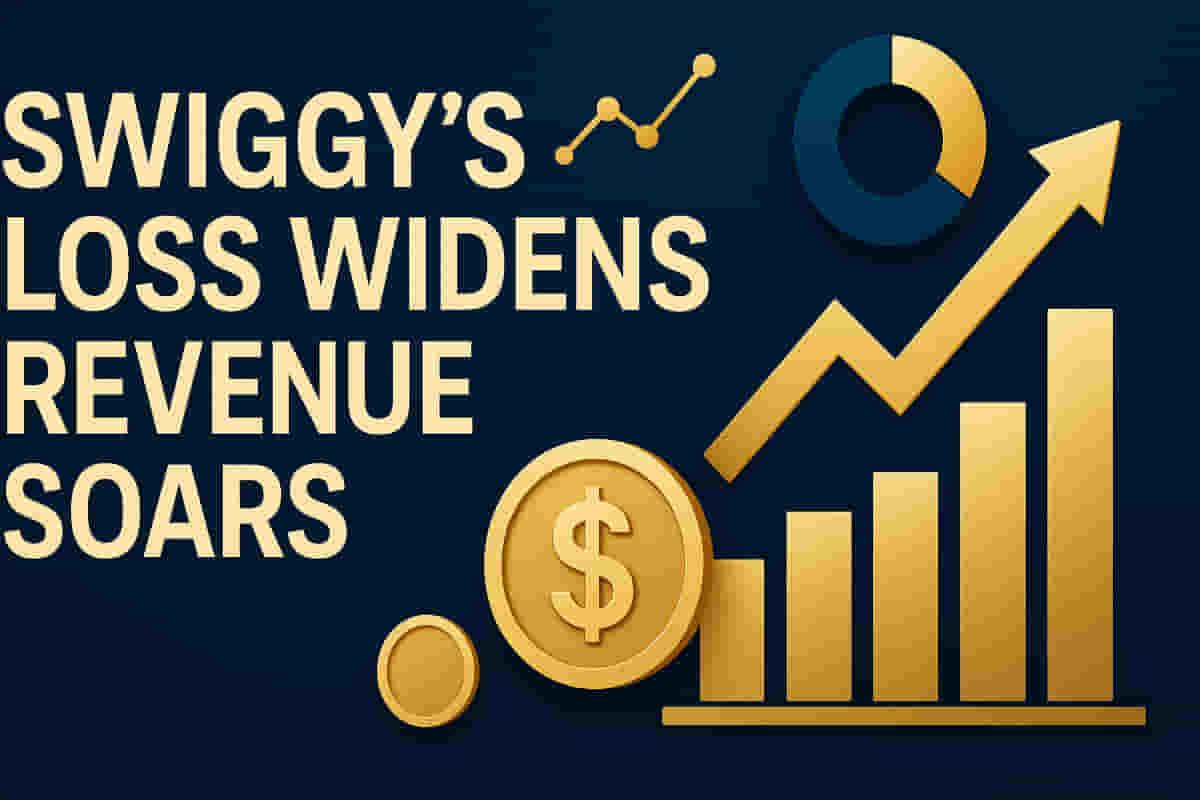Swiggy's Net Loss Widens to ₹1,092 Crore, Revenue Surges 54% in Q2
Consumer Products
|
30th October 2025, 11:03 AM

▶
Short Description :
Detailed Coverage :
Swiggy Ltd. announced its financial results for the September quarter, revealing a net loss of ₹1,092 crore. This represents a notable increase compared to the ₹626 crore loss recorded in the corresponding quarter of the previous year. Despite the widening loss, the company experienced substantial revenue growth. Total revenue for the quarter rose by 54% to ₹5,561 crore, up from ₹3,601 crore in the prior year's September quarter. The company's Earnings Before Interest, Tax, Depreciation, and Amortization (EBITDA) also showed a loss, which grew to ₹798 crore from ₹554 crore year-on-year. Digging deeper into its segments, Swiggy's Food Delivery business reported revenue of ₹1,923 crore, an increase from ₹1,577 crore last year. Its Quick Commerce segment also performed strongly, with revenue doubling to ₹980 crore from ₹490 crore on a year-on-year basis.
Impact This news indicates that while Swiggy is scaling its operations rapidly and increasing its top line, it is also facing higher costs or lower margins, leading to an increased net loss. The significant revenue growth, especially in Quick Commerce, suggests strong market demand for its services. For investors, this highlights the growth potential of the Indian food tech and quick commerce market but also raises questions about path to profitability. The reported stock performance, if applicable to a listed entity, suggests investor caution despite revenue growth. Rating: 6/10.
Difficult terms: Net Loss: This is the total amount by which a company's expenses exceed its revenue over a specific period. Revenue: This is the total income generated from the sale of goods or services related to the company's primary operations. EBITDA (Earnings Before Interest, Tax, Depreciation, and Amortization): A measure of a company's operating performance before accounting for non-operating expenses (interest, taxes) and non-cash expenses (depreciation, amortization). Food Delivery: The service of receiving food orders and delivering them to customers, typically from restaurants. Quick Commerce: A retail model focused on delivering products, such as groceries or convenience items, very rapidly, usually within 10 to 60 minutes of ordering. IPO (Initial Public Offering): The first time a private company offers its shares to the public, making it a publicly traded company.